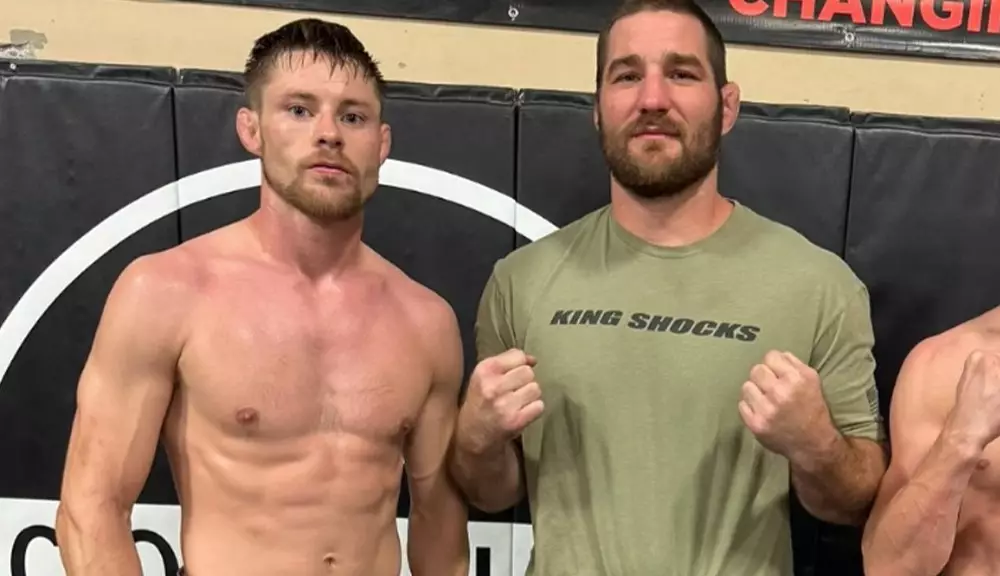The world of mixed martial arts (MMA) is not only known for its intense physical competitions, but it also frequently finds itself at the center of controversial discussions that go beyond the octagon. Recently, Bryce Mitchell, a UFC featherweight, ignited a firestorm of debate with his remarks on the first episode of his podcast, where he controversially referred to Adolf Hitler as “a good guy.” Such statements swiftly led to widespread condemnation, including a sharp rebuke from UFC CEO Dana White, who labeled Mitchell as “one of the dumbest humans.” This incident provides a lens through which to examine the complex interplay between athlete behavior and social responsibility, with implications that reach far beyond sports.
In the aftermath of Mitchell’s comments, the reaction from fans and the media placed immense pressure on the fighter, prompting an apology that many perceived as disingenuous. Far from diffusing the situation, this apology fueled further criticism and highlighted the challenges athletes face in navigating public sentiment. Strickland, a fellow fighter prepping for his own title match, provided some insight into the phrenetic environment that surrounds controversial statements. He initially defended Mitchell but also criticized his lack of understanding and the subsequent apology. This dual stance—both supportive yet critical—illustrates the complex nature of athlete interactions with societal issues.
Sean Strickland’s candid comments regarding Mitchell shed light on the potential influence of radical ideologies within certain circles of the MMA community. He categorized Mitchell not as a genuinely malicious individual but as someone who has fallen victim to a narrow worldview. By labeling him a “f*cking idiot,” Strickland distanced himself from the underlying sentiments expressed by Mitchell while still acknowledging the societal factors that might contribute to such beliefs. This perspective opens up a crucial dialogue about the responsibilities that come with a platform in sports—do athletes bear the burden of addressing societal issues, or should they remain solely focused on their sport?
Mitchell’s case serves as a cautionary tale about the power of public discourse in shaping perceptions. In a world where social media amplifies every word, athletes must be aware that their statements can have far-reaching consequences. Strickland’s assertion that Mitchell should not have apologized brings forth questions about accountability versus the idea of remorse for one’s actions. Does an apology signify a genuine wish to address wrongdoing, or is it merely a reactive measure to quell backlash? The implications of such inquiries can influence not just an athlete’s career but also the culture surrounding combat sports as a whole.
As MMA continues to evolve, this incident with Mitchell beckons all athletes, fans, and stakeholders to reflect upon the societal impact of their words. While the adrenaline-fueled atmosphere of competition can obscure the need for thoughtful dialogue, incidents like this reveal that the sport is inextricably linked to the societal values it represents. Athletes must recognize their influence and acknowledge the weight of their words, as they navigate a world where actions and statements extend far beyond the confines of the fighting arena. In doing so, they have the opportunity to foster a more informed and compassionate environment, not just in MMA, but across all sporting domains.

